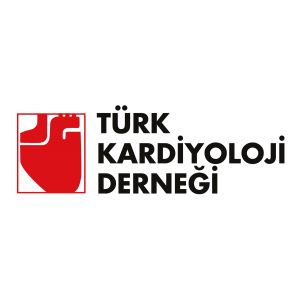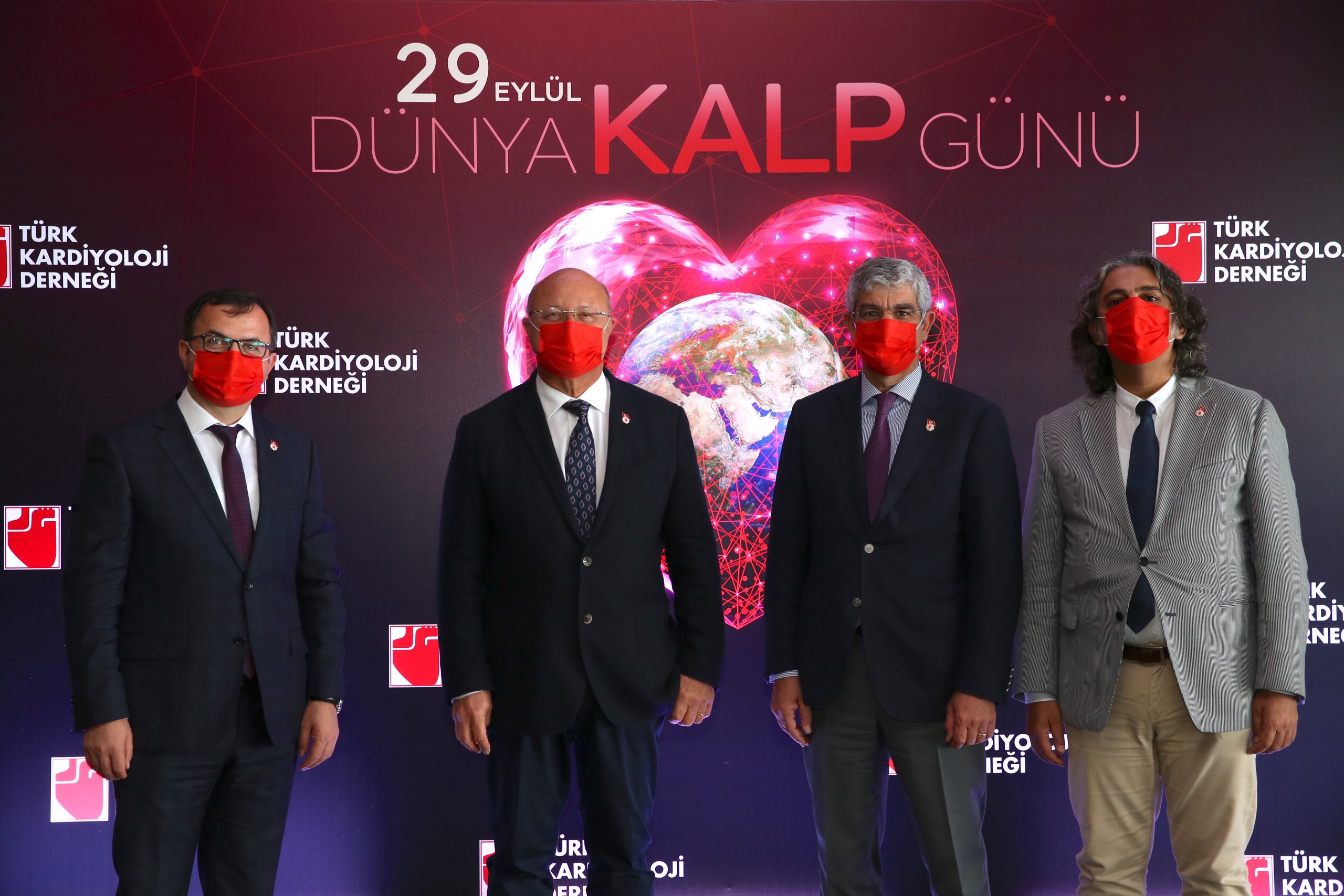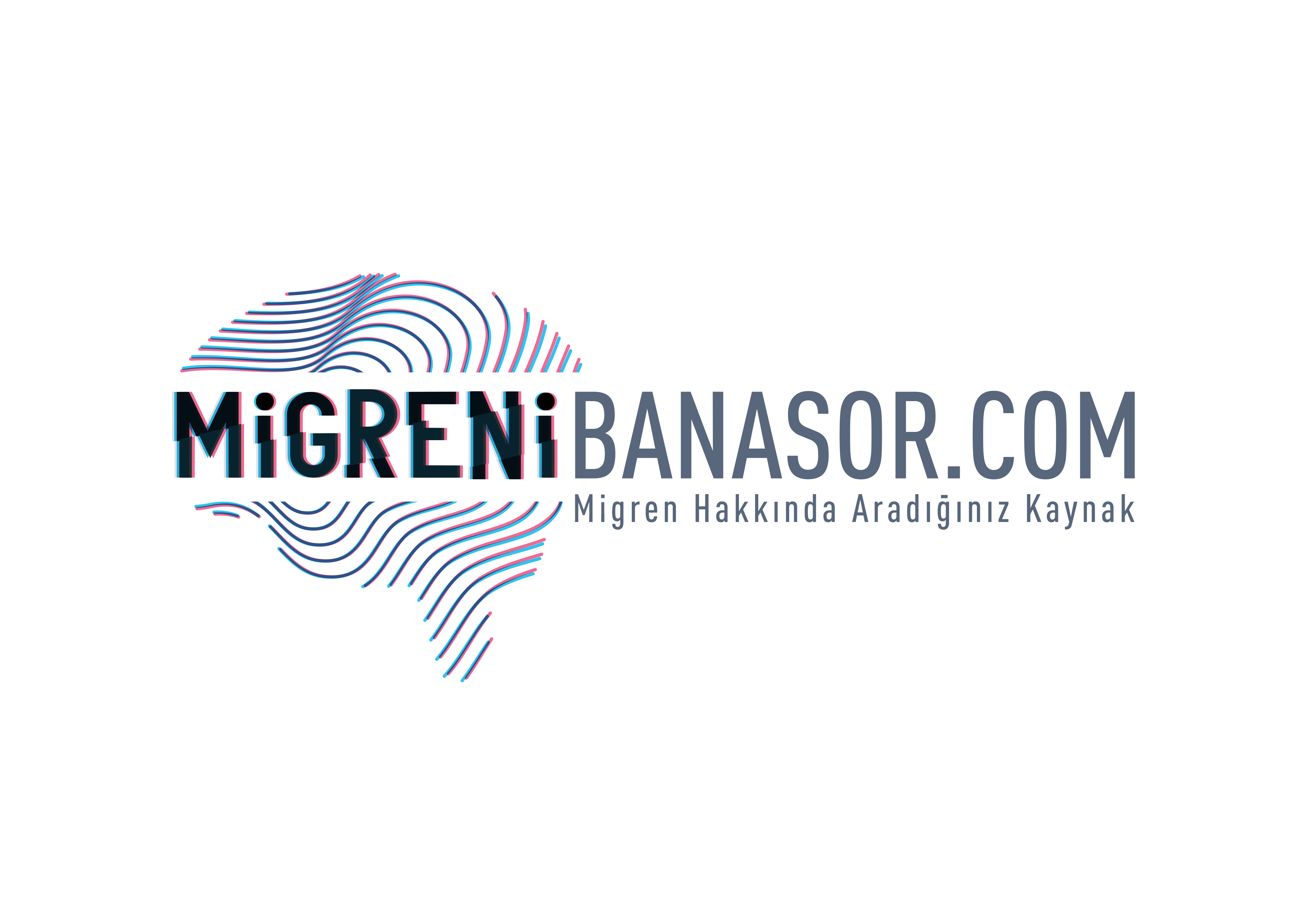 The Turkish Society of Cardiology warned on 29 September World Heart Day to protect against cardiovascular diseases: Less exercise, high blood pressure, high cholesterol, uncontrolled diabetes, overweight and smoking are the leading causes of cardiovascular disease. President of the Turkish Society of Cardiology Prof. Dr. Vedat Aytekin said, “Blood pressure, cholesterol, sugar, smoking, inactivity and weight are the main enemies of our heart. It is never too late to fight and protect against cardiovascular diseases. “Start to fight and be protected as soon as possible,” he said. Aiming to raise awareness about the risks of cardiovascular diseases during the COVID-19 epidemic, the Turkish Society of Cardiology announced its recommendations on protection against cardiovascular diseases with the slogan “Do not let Covid break your heart”.
The Turkish Society of Cardiology warned on 29 September World Heart Day to protect against cardiovascular diseases: Less exercise, high blood pressure, high cholesterol, uncontrolled diabetes, overweight and smoking are the leading causes of cardiovascular disease. President of the Turkish Society of Cardiology Prof. Dr. Vedat Aytekin said, “Blood pressure, cholesterol, sugar, smoking, inactivity and weight are the main enemies of our heart. It is never too late to fight and protect against cardiovascular diseases. “Start to fight and be protected as soon as possible,” he said. Aiming to raise awareness about the risks of cardiovascular diseases during the COVID-19 epidemic, the Turkish Society of Cardiology announced its recommendations on protection against cardiovascular diseases with the slogan “Do not let Covid break your heart”.
Cardiovascular diseases continue to be the leading cause of death in the world. The most important risk factors for cardiovascular diseases are high blood pressure and cholesterol, weight, inactivity, diabetes and smoking. Every year, September 29, determined by the World Heart Federation, is accepted as World Heart Day all over the world, and awareness activities are carried out for cardiovascular diseases all over the world within the scope of this day. The Turkish Society of Cardiology supports these studies in our country and works to inform the Turkish public correctly with various activities for heart health awareness. In this direction, the President of the Turkish Society of Cardiology Prof. Dr. A press conference was held hosted by Vedat Aytekin and attended by the members of the Board of Directors of the Turkish Society of Cardiology.
To the Future with Healthy Hearts
 Making statements at the meeting, President of the Turkish Society of Cardiology Prof. Dr. Vedat Aytekin said, “As the Turkish Society of Cardiology, which has adopted its mission to the Future with Healthy Hearts for many years, we work to raise awareness of our people on cardiovascular diseases with various activities throughout the year and at every opportunity. September 29 has been defined as ‘World Heart Day’ by the World Heart Federation and it has been a good opportunity for us to contribute.” Warns citizens against the risks of cardiovascular diseases, Prof. Dr. Vedat Aytekin said, “Blood pressure, cholesterol, sugar, smoking, inactivity and overweight are the main enemies of our heart. It is never too late to fight and protect against cardiovascular diseases. Start fighting and protecting as soon as possible.”
Making statements at the meeting, President of the Turkish Society of Cardiology Prof. Dr. Vedat Aytekin said, “As the Turkish Society of Cardiology, which has adopted its mission to the Future with Healthy Hearts for many years, we work to raise awareness of our people on cardiovascular diseases with various activities throughout the year and at every opportunity. September 29 has been defined as ‘World Heart Day’ by the World Heart Federation and it has been a good opportunity for us to contribute.” Warns citizens against the risks of cardiovascular diseases, Prof. Dr. Vedat Aytekin said, “Blood pressure, cholesterol, sugar, smoking, inactivity and overweight are the main enemies of our heart. It is never too late to fight and protect against cardiovascular diseases. Start fighting and protecting as soon as possible.”
How Has Covid-19 Affected Heart Diseases?
Due to the Covid-19 pandemic, which has been continuing for almost two years without slowing down, approximately 250 million cases have been seen in the world in the 2020-21 period, and close to 5 million people have lost their lives. The Turkish Society of Cardiology, which closely monitors the moral and economic effects of the pandemic, published two separate reports within two months of the first case in our country, March 12, 2020, and published a report on the aspects of COVID-19 affecting the heart and drug interactions in the light of the information in that date range. In the past year and a half, it is seen that the most effective means of protection against the pandemic is the vaccine. The Turkish Society of Cardiology emphasizes that the protective effect of the vaccine is very important, although there are occasional debates about the types, degree of effectiveness, application methods and durations of the vaccine.
According to the Turkish Society of Cardiology, which provides information on the effects of the disease in terms of heart health and the effects of the vaccine, since the probability of a heart patient to get the COVID-19 virus is the same as every individual in the society, heart patients should not neglect mask, distance and hygiene measures like every individual. However, certain heart diseases can be adversely affected by COVID-19. Among the diseases accepted in the risk group, there are advanced heart failure, cardiomyopathy, congenital heart diseases and types of arrhythmia associated with heart muscle disease. Illness and inflammation of the heart muscle can reduce the force of contraction and cause aggravation of the heart failure picture.
Speaking on the subject, Prof. Dr. Vedat Aytekin said, “Illness of the heart muscle and the pericardium is rare in healthy individuals who do not have heart disease. It can occur in the first four to five days after COVID-19. According to unclear information, myocardial damage is seen below 1 in a thousand in people diagnosed with COVID, and between 7-28% in hospitalized people. The effect of viral infection on the heart may be by direct damage to the heart muscle, or it may be in the form of myocardial inflammation, cardiomyopathy and vascular disease, which may occur due to increased coagulation, systemic inflammation.
Clarifying the discussions on vaccines in terms of heart diseases, Prof. Dr. Vedat Aytekin said, “Today, nearly 90 percent of the patients who have to be hospitalized in intensive care are those who do not have vaccinations. We know that the intensive care process is a very difficult process and heart problems come to the fore in this process. Therefore, the importance of the vaccine is indisputable.
Don’t Let COVID Break Your Heart
All over the world, there has been a decrease in the number of hospital admissions of heart attack cases by nearly half during the pandemic process. According to the results of the TURKMI-II study conducted by the Turkish Society of Cardiology across the country, a decrease of 47.1 percent was observed in heart attack patients who applied to the hospital throughout the country during the pandemic, compared to the TURKMI-I study conducted in the previous period of the pandemic. This study data shows that almost half of the patients who had a heart attack during the pandemic did not apply to the hospital. prof. Dr. Vedat Aytekin called on the citizens and said, “Do not delay your heart problems due to COVID-19. Do not delay getting vaccinated. Do not neglect the mask, social distance and hygiene rules.”
Acting fast is vital in a heart attack
Heart attacks are the most important emergency in heart diseases. Accurate and early detection of heart attacks saves lives by reducing the vital risks. While more than 40% of deaths in Turkey are caused by cardiovascular diseases, more than 200 thousand deaths occur annually from coronary heart disease. For this reason, those with high blood pressure, which is considered a risk for heart disease, death from heart disease at an early age in their family, diabetes, smoking, high cholesterol and high blood fat, are more sensitive to chest pain and should apply to a health institution in such cases. Time is critical in a heart attack. Early intervention prevents or reduces heart damage. While the Turkish Society of Cardiology recommends that every individual try to reduce their own risk of heart diseases, it emphasizes that in case of suspected heart attack, the nearest health institution should be consulted. Underlining that the first hours are vital for a person who has had a heart attack, the Future President of the Turkish Society of Cardiology Prof. Dr.  Muzaffer Değertekin emphasized that approximately one third of the patients who had a heart attack had never come to the hospital and added: “In the studies of TURKMI-I and II, the time elapsed from the start of the patient’s complaints to the call to 112 Emergency in Turkey has increased from an average of 53 minutes before the pandemic to 90 minutes during the pandemic period. it appeared to go up. We see that patients do not call 112 or are late in calling because of the fear of contracting COVID-19. However, the damage increases as the time taken for the ambulance to arrive, for the patient to be transported to the hospital, and for the patient to be taken to the catheter laboratory in the hospital and opened the vein. Time is wasted because the ambulance is not called on time. For this reason, we also have patients that we lose at home before they can reach the hospital.”
Muzaffer Değertekin emphasized that approximately one third of the patients who had a heart attack had never come to the hospital and added: “In the studies of TURKMI-I and II, the time elapsed from the start of the patient’s complaints to the call to 112 Emergency in Turkey has increased from an average of 53 minutes before the pandemic to 90 minutes during the pandemic period. it appeared to go up. We see that patients do not call 112 or are late in calling because of the fear of contracting COVID-19. However, the damage increases as the time taken for the ambulance to arrive, for the patient to be transported to the hospital, and for the patient to be taken to the catheter laboratory in the hospital and opened the vein. Time is wasted because the ambulance is not called on time. For this reason, we also have patients that we lose at home before they can reach the hospital.”
Heart failure
 Turkish Society of Cardiology Board Member Prof. Dr. Mehmet Ertürk stated that Heart failure (HF) is a disease caused by a structural and/or functional abnormality of the heart, manifested by symptoms such as shortness of breath, ankle swelling (edema) and fatigue and he added, “The incidence of HF in the adult population in Europe is 1-2 percent. Its incidence increases with age; While it is approximately 1 percent for the population under 55 years of age, this rate may exceed 10 percent for those over 70 years of age. Just over 50 percent of HF patients are women. Mortality rates in HF may be higher than in many diseases. Some studies report 1-year and 5-year mortality rates after diagnosis as 20 percent and 53 percent, respectively, for all HF patients. Some studies report a higher mortality rate of 67 percent within five years of diagnosis.”
Turkish Society of Cardiology Board Member Prof. Dr. Mehmet Ertürk stated that Heart failure (HF) is a disease caused by a structural and/or functional abnormality of the heart, manifested by symptoms such as shortness of breath, ankle swelling (edema) and fatigue and he added, “The incidence of HF in the adult population in Europe is 1-2 percent. Its incidence increases with age; While it is approximately 1 percent for the population under 55 years of age, this rate may exceed 10 percent for those over 70 years of age. Just over 50 percent of HF patients are women. Mortality rates in HF may be higher than in many diseases. Some studies report 1-year and 5-year mortality rates after diagnosis as 20 percent and 53 percent, respectively, for all HF patients. Some studies report a higher mortality rate of 67 percent within five years of diagnosis.”
Preventive measures and risk factors
 General Secretary of the Turkish Society of Cardiology Prof. Dr. Ertuğrul Okuyan drew attention to the risk factors and added, “The main goal in the slogan of ‘To the Future with Healthy Hearts’ is to prevent getting sick, diabetes, weight, high blood pressure and cholesterol, smoking are the most important risk factors that cause cardiovascular disease.” prof. Dr. Ertuğrul Okuyan also shared the following views: “It is very important to avoid ready-made foods, avoid sugary drinks, and consume less sweet fruits. People with diabetes are twice as likely to have a heart attack. Weight and insulin resistance also pave the way for heart diseases. There are more than 400 million diabetics in the world today. Weight gain and excessive carbohydrate consumption should be avoided. It is essential for diabetics to make an effort to ensure a very strict sugar control. It is stated that high cholesterol is responsible for the death of 2.6 million people in the world. Cholesterol is one of the most important causes of cardiovascular disease and stroke.”
General Secretary of the Turkish Society of Cardiology Prof. Dr. Ertuğrul Okuyan drew attention to the risk factors and added, “The main goal in the slogan of ‘To the Future with Healthy Hearts’ is to prevent getting sick, diabetes, weight, high blood pressure and cholesterol, smoking are the most important risk factors that cause cardiovascular disease.” prof. Dr. Ertuğrul Okuyan also shared the following views: “It is very important to avoid ready-made foods, avoid sugary drinks, and consume less sweet fruits. People with diabetes are twice as likely to have a heart attack. Weight and insulin resistance also pave the way for heart diseases. There are more than 400 million diabetics in the world today. Weight gain and excessive carbohydrate consumption should be avoided. It is essential for diabetics to make an effort to ensure a very strict sugar control. It is stated that high cholesterol is responsible for the death of 2.6 million people in the world. Cholesterol is one of the most important causes of cardiovascular disease and stroke.”
Prof. Dr. Vedat Aytekin added the following, “The most important problem we saw during the pandemic period was the deterioration in dietary habits due to inactivity and staying closed at home. In addition, emotional negativities caused by being closed at home caused blood pressure to rise.”
Reminding that a new slogan for cardiovascular health is determined by the World Heart Federation every year on September 29, World Heart Day, President of Turkish Cardiology Association Prof. Dr. Vedat Aytekin added, “This year, our traditional slogan is “To the Future with Healthy Hearts” and we have determined our second slogan as “Do not let COVID-19 break your heart”, wishing that new negativities will not occur again due to the COVID-19 epidemic.”



